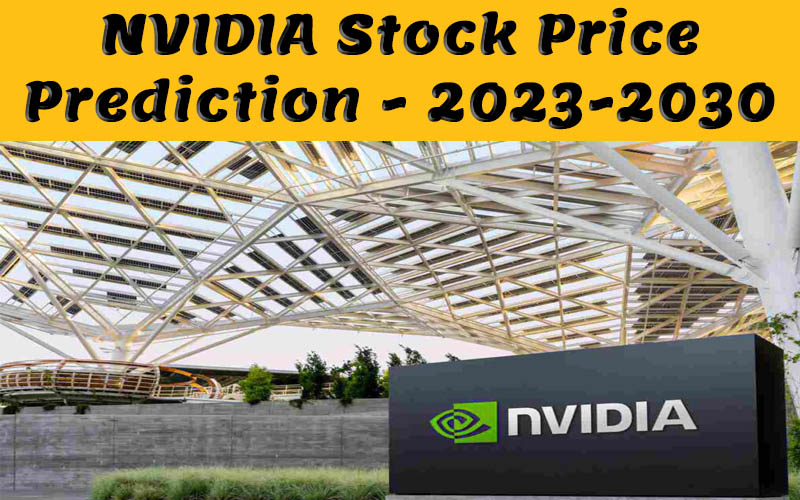Explore the contrasting perspectives of Sundar Pichai and Jensen Huang on the Quantum Computing Future. What do their views mean for technology and industries? Find out here.

The vast potential of quantum computing has captivated the tech world, sparking intense debates about its future impact. Recently, two influential tech leaders, Google’s Sundar Pichai and Nvidia’s Jensen Huang, have shared their thoughts on this revolutionary technology, offering starkly different timelines for its practical applications. Pichai foresees a world where quantum computers become commonplace within five to ten years, while Huang takes a much more cautious stance, predicting that truly impactful quantum advancements are still decades away. Let’s unpack what these contrasting views mean for the future of quantum computing.
Read Also – 👉👉Amazon Q4 Earnings: Powerful Insights and Future Outlooks👈👈
Understanding Quantum Computing: A Brief Overview
What is Quantum Computing?
At its core, quantum computing is based on the principles of quantum mechanics, a branch of physics that deals with the behavior of very small particles. Unlike classical computers that use bits as the smallest unit of data (either 0 or 1), quantum computers use quantum bits, or qubits, which can exist in multiple states at once. This allows quantum computers to perform certain types of calculations far more efficiently than traditional systems. Think of it like having a multi-lane highway versus a one-lane road—the former allows for more cars (or data) to travel simultaneously, drastically reducing travel (or computation) time.
The Current Landscape of Quantum Research
Over the past few years, the race to develop practical quantum computing technology has gained momentum, with major players like Google and IBM making significant strides. Billions of dollars have been funneled into quantum research, particularly in the United States and China, each nation vying for technological supremacy. Achievements such as Google’s landmark demonstration of quantum supremacy in 2019 showcased the potential of these machines, sparking optimism about their future applications, from cryptography to drug discovery.
Sundar Pichai’s Vision for Quantum Computing
Comparing to AI Development
Sundar Pichai’s perspective is optimistic, and he draws parallels between the evolution of quantum computing and the rapid advancements seen in artificial intelligence (AI). At the World Governments Summit in Dubai, Pichai asserted that quantum computers could reach practical applications within the next five to ten years, much like how AI has revolutionized multiple industries in a short span. His faith in this timeline indicates that he believes we are standing at the threshold of a new era of technological advancement.
Support from Quantum AI Experts
Pichai’s confidence is echoed by Hartmut Neven, who heads Google’s Quantum AI team. Neven posits that we could see real-world applications for quantum computing in the next five years. Google’s ongoing breakthroughs in quantum hardware signify that the technology is not as far from practicality as some may think.
Jensen Huang’s Cautionary Approach to Quantum Technology
The Reality of Technical Challenges
On the other side of the spectrum, Jensen Huang takes a more circumspect approach, suggesting that significant hurdles remain before quantum computing can be genuinely transformative. During a recent statement, he mentioned that useful quantum computers may still be several decades away, which raised eyebrows across the tech community. This caution stems from the intricate technical challenges that quantum systems face, such as maintaining qubit coherence and minimizing error rates.
Market Reactions to Huang’s Insights
Huang’s conservativism had immediate repercussions on the market, causing stocks related to quantum investments to drop sharply after his remarks. It’s a wake-up call about how investor sentiment is intricately tied to the perceived timelines of technological advancement.
Implications for the Future of Quantum Computing
Impact on Investment and Research
The differing projections from Pichai and Huang could influence the investment landscape in quantum computing. Pichai’s timeline might spur increased funding into quantum research as stakeholders seek timely returns on their investments. In contrast, Huang’s caution could make investors think twice, potentially stalling funding initiatives.
Significance for Industries
The future of quantum computing will not only shape investment strategies but also the technological frameworks of various industries. Sectors such as healthcare, energy, and finance stand to gain immensely if quantum computing can deliver practical applications sooner rather than later.
The Road Ahead: Key Factors Shaping Quantum Computing’s Future
Breakthrough Technologies
Significant advancements in quantum technology will play a pivotal role moving forward. Achieving reliable error correction and effective scaling methods will be crucial for transforming quantum computing from a theoretical pursuit into a mainstream technology.
Collaborative Efforts and Government Involvement
Furthermore, collaboration between government bodies, private enterprises, and research institutions will be essential for overcoming existing barriers. Structured investments, policy frameworks, and favorable regulations will facilitate a faster transition into practical application stages.
Conclusion: The Quantum Computing Future Awaits
The exchange between Sundar Pichai and Jensen Huang epitomizes the complex landscape of quantum computing development. While Pichai envisions a near-future of practical applications, Huang underscores the hurdles yet to be cleared. Regardless of timeline, the importance of quantum computing cannot be overstated; its potential to reshape industries and our approach to problem-solving is monumental. As the tech world watches these developments unfold, one thing is clear: the quantum computing future is a frontier brimming with possibilities, innovation, and challenges that are just beginning to be explored.
Frequently Asked Questions About Quantum Computing
What is quantum computing?
Quantum computing is a type of computing that uses quantum bits (qubits) instead of classical bits. Qubits can represent and store information in multiple states at once, allowing quantum computers to process complex calculations much faster than traditional computers.
Why are Sundar Pichai and Jensen Huang’s views on quantum computing important?
Their perspectives highlight the ongoing debate about the future of quantum technology. Pichai’s optimism suggests rapid advancements, while Huang’s caution emphasizes the significant technical challenges that remain, impacting investment and development strategies in the sector.
When can we expect practical quantum applications?
Forecasts vary widely. Pichai believes practical applications could be seen within five to ten years, while Huang suggests it may take several decades, depending on how quickly technical challenges are addressed.
What industries will benefit from quantum computing?
Quantum computing has the potential to transform various industries, including healthcare, finance, energy, and materials science, by providing solutions to complex problems that traditional computers cannot solve efficiently.
Related Videos
Read Also –
This article reflects the views of industry leaders and includes predictions about the future of quantum computing. Actual timelines and developments may vary based on ongoing research and technological advancements.
Hey! I hope you enjoyed reading this! If you did, could you do me a small favor and hit the like button? It would mean a lot to me and help me reach more people. Thank you so much! Got any thoughts on this post? Drop them in the comments below!
How many stars would you give for my effort?





